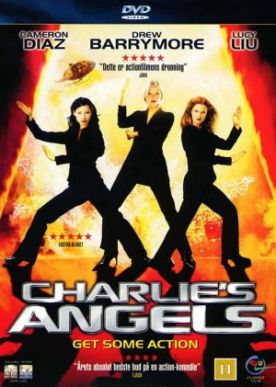Albert Nobbs
Insofar as Albert Nobbs, directed by Rodrigo García (Nine Lives), has found favor in the eyes of the Motion Picture Academy it is on account of the performance of Glenn Close in the title role, which earned her an Oscar nomination and which rivals that of Meryl Streep as Margaret Thatcher in The Iron Lady. The latter just got her nose over the finish line first for impersonating an actual person — and a famous one at that, so that savvy audience members could compare the original with her excellent copy — rather than a fictional character, but Glenn, who is female, may have had the more difficult task in taking on the role of a woman playing a man in Victorian-era Dublin. Of course, she has it a little easier than her eponymous character, since she is a woman playing a woman playing a man and since she doesn’t have so much at stake in keeping the secret of her true sex. In fact, the movie doesn’t even try to keep the secret from us, at least not beyond its first few minutes, which could be a bit risky on Mr Garcia’s part. It would not do for him to allow his audience to feel too superior to his other characters, only one of whom has a clue, until the big reveal, about Albert’s real identity.
But then that’s really the question that is meant to interest us. What is Albert’s real identity? Miss Close told John Hiscock of the (London) Daily Telegraph that “I’d always felt that because my face is very well known it would have been a burden in this part, but after I was made up I looked in the mirror and it wasn’t me any more. There was this strange creature, and I started to cry. It was like — there she is.” The tears, I take it, were tears of joy. She reckoned, as the Academy has since done, that turning herself into Albert was a tremendous achievement, as indeed it was. Yet that achievement is also curiously at odds with the premiss of the film, which can be summed up in the progressive principle that I had occasion to mention in my recent review of Young Adult — and which is very dear to the heart of the progressive media culture as well — that it is dishonest, quite wrong and probably dangerous for people to assume any other identity than that of the person who they think they are.
To be sure, who Albert thinks he — or she — is is perspicuous neither to Albert nor to us. We learn that he first assumed the identity of Albert, rather than who she presumably was, on account of male sexual violence, but that is presumably the fault of the males’ choosing to conform to less benign sexual roles laid down for them by society. And society has since done such a good job of forcing Albert into the role of Albert that she has all but forgotten that she was ever anyone else. When her friend and fellow cross-dresser, Hubert (Janet McTeer), made privy to her sad history, asks her what her real name is, she looks bewildered: “Albert,” she says. That’s as real as it gets for her. At another point in the film, Albert is serving at costume ball in the 19th century Dubliin hotel where he works when he is accosted by Brendan Gleeson’s Dr. Halloran. “Why aren’t you in fancy dress?” asks the doctor.
“I’m a waiter.”
“And I’m a doctor. We are both disguised as ourselves,” he observes sagely.
Yet, in another scene, we see Albert and Hubert attiring themselves as women and taking a stroll on the beach. Albert appears to experience a sense of euphoria at recapturing the feeling of being a woman, which he says he has almost forgotten. Hubert tells her: “Albert, you don’t have to be anything but who you are,” which, under the circumstances, is probably not exactly a reassuring thing to hear. It certainly doesn’t help her to figure out who she is. But the film — fatally, I think — glosses over this little difficulty, preferring instead to follow Albert’s attempt to fall in with Hubert’s imperative to “Find someone to start a new life with.” Hubert him- or herself has done this by taking a wife, Cathleen (Bronagh Gallagher), with whom he or she seems to be blissfully happy — though beyond that we are not encouraged to inquire. Albert naturally wonders,”Did he tell her he was a woman before the wedding, or after?” when he or she decides to go and do likewise by proposing to Helen (Mia Wasikowska), a little flirt of a serving girl in the hotel where they both work.
It does seem rather odd — does it not? — that when “Albert” sets her cap at Helen or “Hugo” is depicted in a state of cosy domesticity with Cathleen that there is apparently meant to seem something slightly indecorous about the question of how the overtly female partner in the relationship is meant to feel about it. There is just the slightest of hints that the secret of Albert’s sexuality might come as a bit of a shock to Helen on their wedding night, but not that the latter’s possible preference for a male rather than a female husband should otherwise be a matter of concern to her would-be swain. And, so far as she herself knows, Helen does prefer men, as she is already seeing the rough diamond of a hotel handyman, Joe (Aaron Johnson). Joe wants her to encourage Albert’s attentions because the latter has got some savings that he intends to put towards buying a tobacconist’s shop. “You’re going to go out with him as long as there’s a bob in his pocket and you have a hand to pull it out,” Joe tells her.
Significantly, Joe has some identity problems as well. His dad was a drunk who beat him savagely and he finds, when he gets his hands on some of Albert’s money, that he is rather fond of the bottle himself. “You’re a boozer, just like your dad,” says Helen in one of their quarrels. He, for his part says, “I don’t want to be that person; I don’t want to be me fecking dad.” In his case, however, it is his genes and not his wishes that appear to be his destiny. The also drunken Dr. Holloran, who is meant to be the film’s chorus, later says with a melancholy air, “I don’t know what makes people live such miserable lives” — and he soon runs off to London with another of the hotel maids because he is said to be “tired of secrets.” But poor Joe, who is likewise off to America as soon as he can find a way to get there, should serve as a reminder that it is not always secrets that cause unhappiness. Sometimes it’s surrendering prematurely and too completely to the inevitability of who you think you are.
Discover more from James Bowman
Subscribe to get the latest posts to your email.







